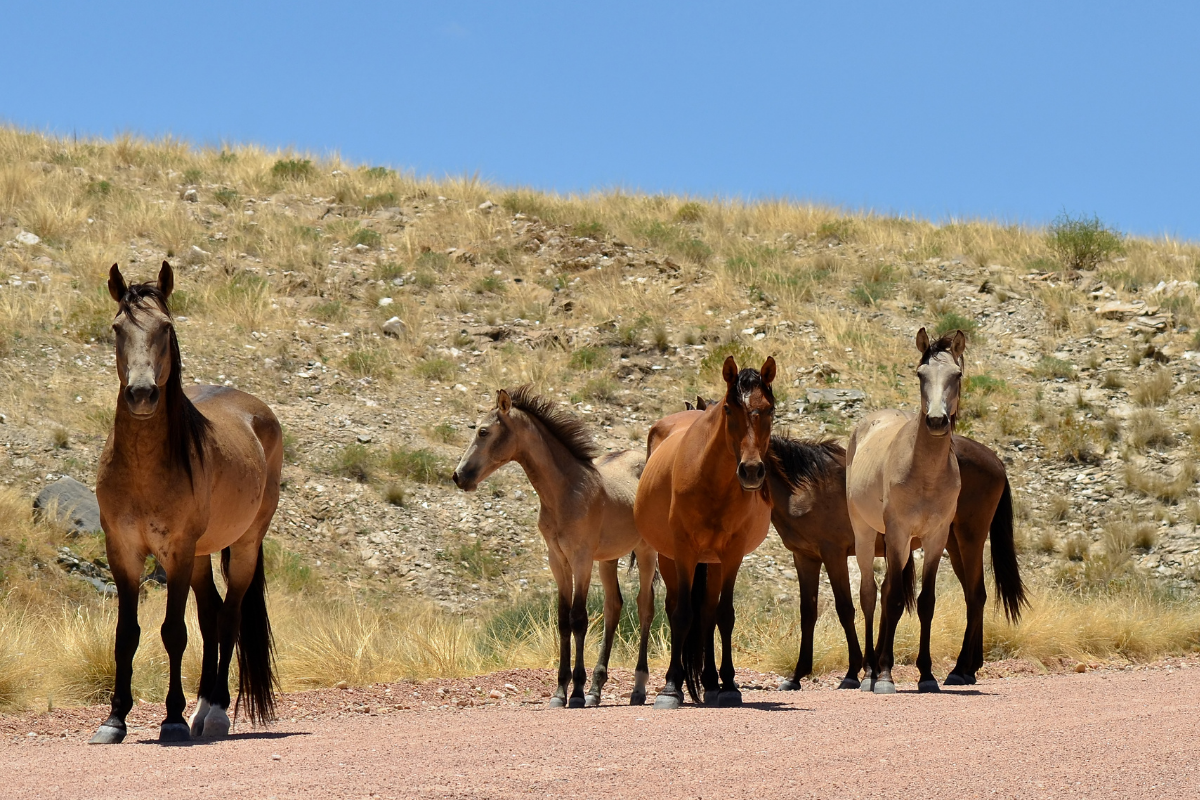There are a measly 1,527 wild horses in Colorado roaming on 365,988 acres of public land managed by the Bureau of Land Management.
That’s why it is so alarming to Friends of Animals that SB23-275 is being considered by the Colorado General Assembly, a bill that allows America’s beloved wild horses to be forcibly drugged with fertility control such as the pesticide PZP. The bill would also create the “wild horse project,” a nonprofit, state-owned corporate entity that manages and operates wild horse management programs.
Please contact your Colorado state senators immediately and tell them not to pass this bill. You can find your senator by typing in your street address here.
The Equid Specialist Group of the International Union for Conservation of Nature’s Species Survival Commission recommends minimum populations of 2,500 individuals for the conservation of genetic diversity. Currently, no single herd management area has a minimal viable population for the long term, nor does the entire state of Colorado. The debate over controlling wild horses’ reproductive lives has become so heated that it has caused a significant break among wild horse advocates.
What PZP pushers don’t want the public to know is that new research shows PZP sterilizes wild horses after multiple uses and results in risky foal birth out of season and significant behavioral changes that can affect the overall health of the herd. The widespread use of PZP is contrary to the true core intent of the Wild Horse and Burro Act of 1971, which was to restore wild horses as harmonious components of the public land ecosystem.
Wild horses are not overpopulated. BLM has sacrificed the protections Congress afforded wild horses in the WHBA to the meat industry and other commercial interests. Of the 245 million acres of public land managed by the BLM, 155 million is open to livestock grazing. By contrast, wild horses are restricted to just 26.9 million acres (which continues to decrease under BLM management), which they must share with livestock. Upwards of 2 million cattle graze public lands, not to mention millions of sheep, and the government has authorized thousands of oil, gas and mineral extraction projects in these areas as well. These activities, not wild horses, are damaging the environment, fragmenting wildlife habitat and contributing to climate change.
The proposed bill does not address the fact that BLM has never accurately determined how many wild horses the range can support. We should not be throwing taxpayer money to perpetuate the broken system.
The Colorado bill ignores the real problem—BLM caters to ranchers who continue to graze cattle and sheep on public lands at extremely reduced rates. Just look at the livestock grazing permits in the Sand Wash Basin Herd Management Area, where a roundup is slated for September.
Only 362 wild horses are allowed to graze there, yet a staggering 12,026 sheep and 300 cattle are allowed to graze in the herd management area.
Unlike cattle and sheep, wild horses can benefit the ecosystem during droughts. Wild horses can dig wells creating oases that serve as a boon to other wildlife. Wild horses help to prevent catastrophic fires and build more moisture-retaining soils.
Wild horses also help spread plant seeds over large areas. Wild horses do not decompose the vegetation they ingest as thoroughly as cattle or sheep, which allows the seeds of many plant species to pass through their digestive tract intact into the soil that the wild horses fertilize with their droppings.
The Colorado bill prohibits even considering transferring forage from private industries to wild horses and other wildlife without their agreement. Industry should not be allowed to control our public lands.

